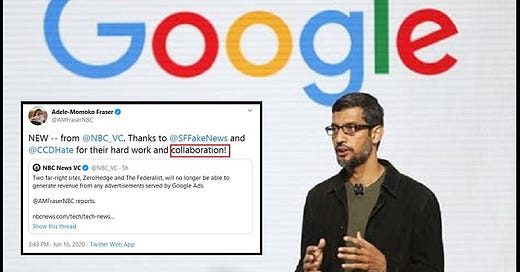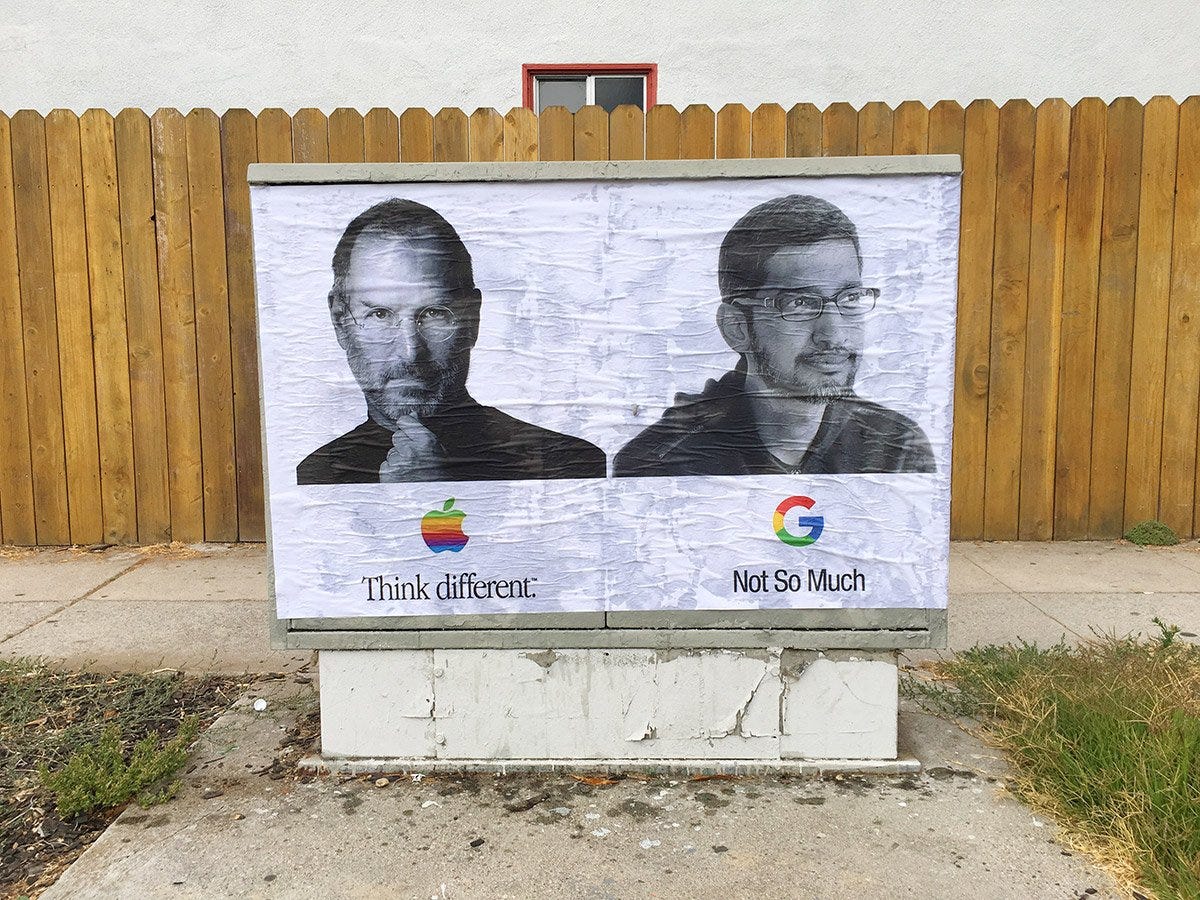SUNDANCE: Court Rules Google is Monopoly Violating Sherman Antitrust Act
After two years of pre-trial litigation, and a year of trial in front of U.S. District Judge Amit Mehtata, the court has determined that Google is factually a monopoly operation in the business of online search engine use and advertising. Google is violating section 2 of the Sherman Antitrust Act by running a monopoly business model. The court highlighted the results of Judge Mehtata review in a 286-page opinion – SEE HERE. A key excerpt is provided below:
COURT RULING pdf – […] “Google has not achieved market dominance by happenstance. It has hired thousands of highly skilled engineers, innovated consistently, and made shrewd business decisions. The result is the industry’s highest quality search engine, which has earned Google the trust of hundreds of millions of daily users.
But Google also has a major, largely unseen advantage over its rivals: default distribution. Most users access a general search engine through a browser (like Apple’s Safari) or a search widget that comes preloaded on a mobile device. Those search access points are preset with a “default” search engine. The default is extremely valuable real estate.
Because many users simply stick to searching with the default, Google receives billions of queries every day through those access points. Google derives extraordinary volumes of user data from such searches. It then uses that information to improve search quality. Google so values such data that, absent a user-initiated change, it stores 18 months-worth of a user’s search history and activity.
The distribution agreements benefit Google in another important way. More users mean more advertisers, and more advertisers mean more revenues. As queries on Google have grown, so too has the amount it earns in advertising dollars. In 2014, Google booked nearly $47 billion in advertising revenue. By 2021, that number had increased more than three-fold to over $146 billion. Bing, by comparison, generated only a fraction of that amount—less than $12 billion in 2022.
For years, Google has secured default placements through distribution contracts. It has entered into such agreements with browser developers, mobile device manufacturers, and wireless carriers. These partners agree to install Google as the search engine that is delivered to the user right out of the box at key search access points.
Google pays huge sums to secure these preloaded defaults. Usually, the amount is calculated as a percentage of the advertising revenue that Google generates from queries run through the default search access points. This is known as “revenue share.” In 2021, those payments totaled more than $26 billion. That is nearly four times more than all of Google’s other search-specific costs combined.
In exchange for revenue share, Google not only receives default placement at the key search access points, but its partners also agree not to preload any other general search engine on the device. Thus, most devices in the United States come preloaded exclusively with Google. These distribution deals have forced Google’s rivals to find other ways to reach users.
Google’s dominance eventually attracted the attention of antitrust enforcers—the U.S. Department of Justice and nearly every state’s Attorney General. They homed in on Google’s distribution agreements and in late 2020 filed two separate lawsuits alleging that the agreements and certain other conduct violate Section 2 of the Sherman Act. According to their complaints, Google has unlawfully used the distribution agreements to thwart competition and maintain its monopoly in the market for general search services and in various online advertising markets.
The proceedings that followed have been remarkable. Discovery began in December 2020 and concluded in March 2023.
[…] After having carefully considered and weighed the witness testimony and evidence, the court reaches the following conclusion: Google is a monopolist, and it has acted as one to maintain its monopoly. It has violated Section 2 of the Sherman Act.
Specifically, the court holds that (1) there are relevant product markets for general search services and general search text ads; (2) Google has monopoly power in those markets; (3) Google’s distribution agreements are exclusive and have anticompetitive effects; and (4) Google has not offered valid procompetitive justifications for those agreements. Importantly, the court also finds that Google has exercised its monopoly power by charging supracompetitive prices for general search text ads. That conduct has allowed Google to earn monopoly profits.” (read more)
This is only one facet to the Google monopoly enterprise. There are other lawsuits challenging the Advertising rules and regulations enforced by Google that block funds from online content providers. Google is a leftist control operation, with comprehensive totalitarian alignment.
Don’t think that our U.S. Government is against this monopoly just because they were forced to respond to it with a lawsuit. DHS and the IC love having a single control point they can exploit and compromise. Monopolies are useful for the interests of the government who corrupts and utilizes them.
Within the Public/Private Technocracy system that Barack Obama helped to build between Big Tech and Government, they both collaborate on the benefits of singular power structures. A pox on all of them!
MSM – Kent Walker, Google’s president of global affairs, said the company intends to appeal Mehta’s findings.
“This decision recognizes that Google offers the best search engine, but concludes that we shouldn’t be allowed to make it easily available,” Walker said.
For now, the decision vindicates antitrust regulators at the Justice Department, which filed its lawsuit nearly four years ago while Donald Trump was still president, and has been escalating it efforts to rein in Big Tech’s power during President Joe Biden’s administration.
“This victory against Google is an historic win for the American people,” said Attorney General Merrick Garland. “No company — no matter how large or influential — is above the law. The Justice Department will continue to vigorously enforce our antitrust laws.”
The case depicted Google as a technological bully that methodically has thwarted competition to protect a search engine that has become the centerpiece of a digital advertising machine that generated nearly $240 billion in revenue last year. Justice Department lawyers argued that Google’s monopoly enabled it to charge advertisers artificially high prices while also enjoying the luxury of not having to invest more time and money into improving the quality of its search engine — a lax approach that hurt consumers. (MORE)







